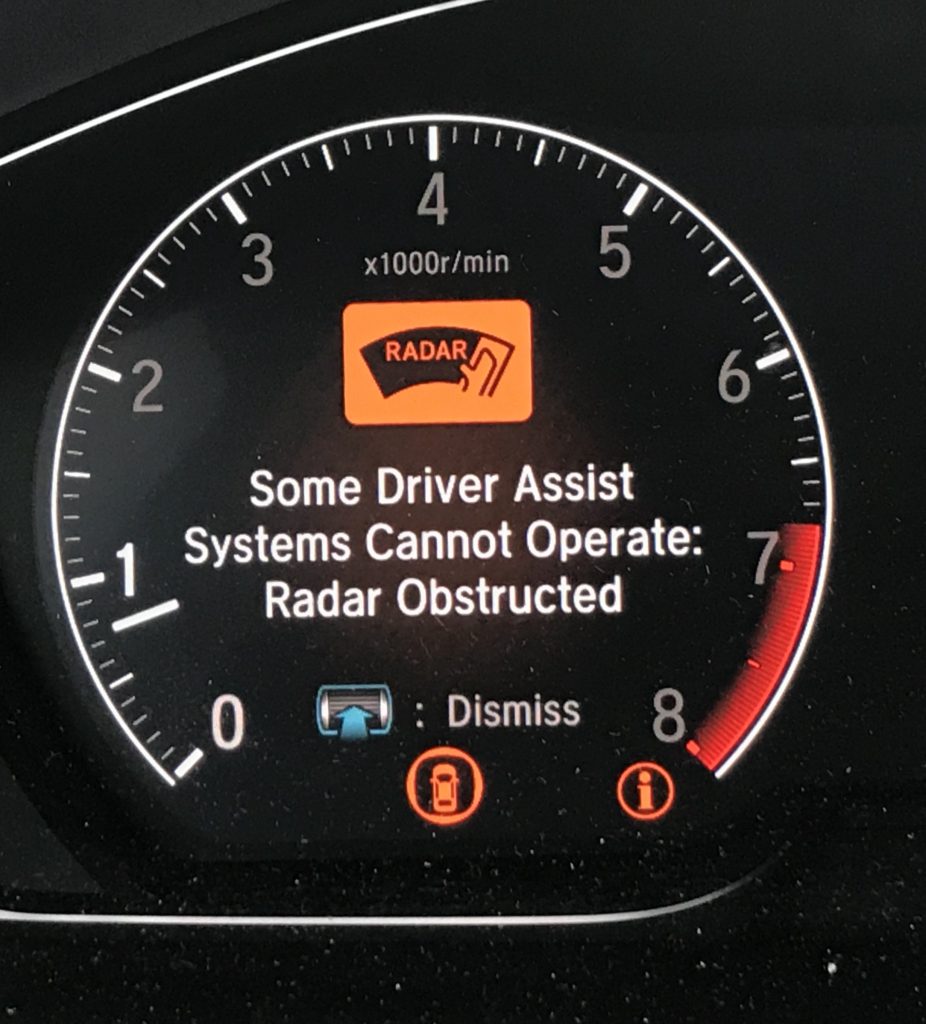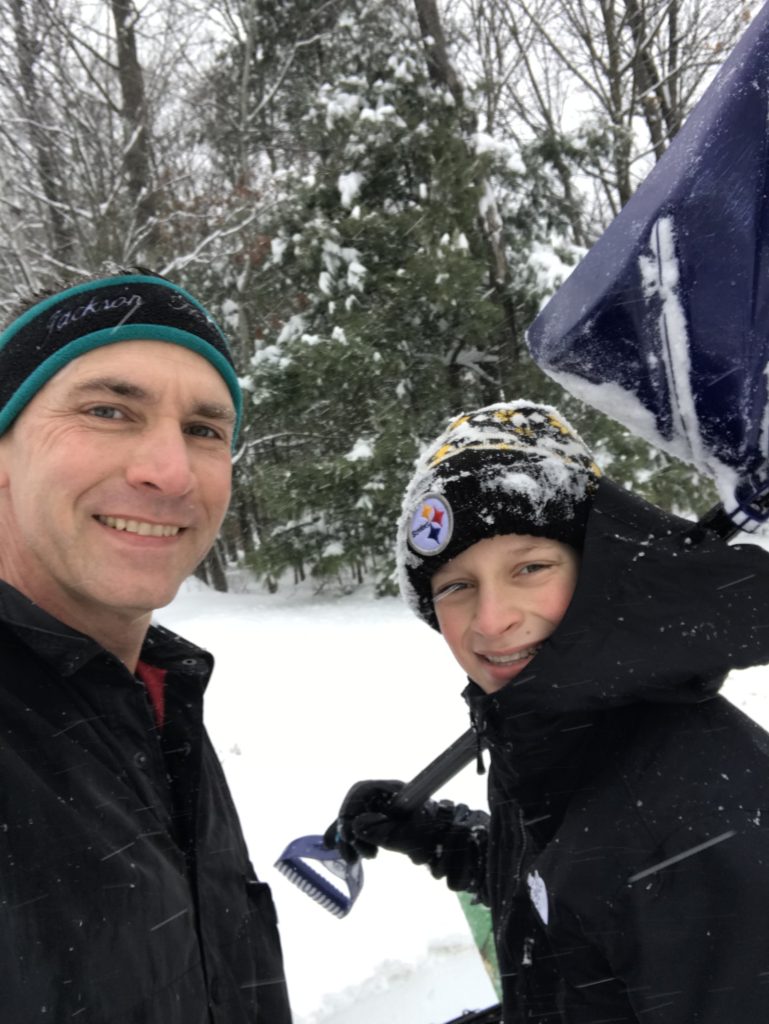“It” Still Needs Me

You can’t go anywhere without hearing, seeing or feeling the impact information technology, or “it” has and will continue to have on our lives. From smart appliances, online shopping, home automation, and future space travel to faster cures for diseases and even autonomous cars to name a few. The recent winter storm reminded me again how important we are in this equation, and that no matter how far technology progresses…”it” as well as those in our lives will always need us.
As I drove cautiously towards the grocery store, I began to think traveling in these snowy conditions was a bad idea. Besides it being almost nightfall, the roads were covered and the snow was falling faster than ever. The plows hadn’t even been out and there were only deep snowy tracks from other cars as I drove through my neighborhood.
As I waited to pull out onto the main road, a snowplow thankfully drove by slowly, slinging the snow and slush to the side of the road. I pulled out and proceeded cautiously behind it, very aware of the road conditions.
As I came around a corner a few miles down, a car from the opposite direction hit the slush in its lane perfectly as it passed me, propelling it into the air and directly onto my windshield. “Splat!” The loud sound and force of the wet, heavy slush shook the car and mindset. The windshield was completely covered. I couldn’t see anything. For a split second my mind raced. What should I do? My foot eased off the gas, I steadied my steering and then quickly hit the windshield wipers to remove the snow that was obstructing my view while blindly maintaining my distance from the plow in front of me and staying in my lane on the road. Problem solved…at least I thought.
Suddenly an alert appeared on my dashboard:

“Some driver assist systems cannot operate: radar obstructed.”
It appeared that my car’s onboard driver assist system was not as lucky as I was. In fact, “it” was no longer able to detect its surroundings due to the driving conditions(slush and snow) even though the windshield was clear (radar is in the front of the car).
Jokingly, I thought: Now what?
Who will tell me I should “brake” or that there has been a “lane departure”?
Or automatically reduce my cruise control speed as I come upon another car or tell me that there is “traffic” in my blind spot?
Worse yet, who will help me back up if the camera doesn’t work.?
LOL. “Wait…I will! I know how to drive!”
Isn’t that what I was supposed to be doing behind the wheel? Driving alertly, being aware of my surroundings and safely navigating my car among other drivers and obstacles? And although the obstructed radar wasn’t impacting my driving at that moment, it made me think about the expectation that was slowing infiltrating my psychology by “it”:
“Someday I won’t have to pay attention when I drive. I might even be able to check out”
As scary or exciting as that sounds depending on your perspective, it will likely be the case in the future just like traveling on trains, planes and subways. Driving will become an “obsolete” skill for most as more autonomous vehicles hit the roads.
But is that what I wanted? Questions began to fill my mind:
Was I knowingly choosing the atrophy of my driving skills for something more “productive” like reading this blog post, finishing my Christmas shopping online or even sleeping?
Had I let “it” slowly and gently begin to coerce me out of a skill I once coveted as a teenager: the ability, responsibility and pleasure of driving? Wasn’t driving a metaphor and milestone for freedom, growth and independence, but now becoming a perceived future inconvenience!?!

What would my 13 year old son expect when he turns 16? Will he ever feel the pride of driving “himself” to school, using his mirrors to change lanes or successfully parallel parking? Or will he expect the car to automatically do it once he pushes the right button? Man, I sound old!
In fact , was automatic or “autopilot” becoming the standard expectation for him driving, through the brilliance of marketing and promise of “its” capabilities? Was his safety, value and efficiency no longer in his acquired knowledge of operating a motor vehicle in various driving “conditions” but rather in the ability of “it” to detect, interpret, respond and “navigate” on our behalf?
In “its” defense, I’ll admit there are some days I drive to work and wonder how I got there as my mind seems to wander from the task at hand. This is an even more dangerous form of autopilot as neither I nor “it” is fully in control yet. In this use case, “it” would make travel safer when I am preoccupied behind the wheel.
So is that the answer? Let “it” be our safety valve for when we inevitably “checkout” in routine activities that once captivated and required our attention like driving? The key will be where do we draw the line?
Could an “autopilot mindset” with driving, begin to set a mental expectation for how we “drive” other areas of life and had this too already began?
Was I “steering” discussions with my kids and wife when we were together in a car, at an event or at home?
Was I “pumping the brakes” when my actions were negatively impacting my health and finances?
Was I looking “out the windshield” towards an intentional future and but also learning from past mistakes in the “rear view mirror”?
Or was I slowly being desensitized to the overwhelming pace of change around me, disengaging from my responsibilities “behind the wheel” and waiting for “it” to alert me that my marriage was in trouble, health was at risk or child needed me so that I could mindlessly browse the web, binge on Netflix or shop online? Could “it’s” allure of autopilot in one area of life such as driving be setting a mental precedent and mislead me into “falling asleep at the wheel of life”?”
I don’t have any answers. Only more questions. What I do know is it is different for everyone and that this post isn’t about debating the many benefits that are likely when “it” (technology) gives us more time to do other things instead of driving. Rather, this post is get your to think about whether you are consciously choosing the role you let technology play in your life and how that one decision can shape your thoughts and expectations in how you “drive” other areas of your life like your health, your family, your career and service to others. The real question will be what level of awareness and accountability do you want versus that delegated to technology, whether steering your car in a snow storm or driving your life towards your dreams.
The error message continued for several more miles until I reached safely home to my family where I got out and cleared all visible slush and snow from the front of the car. The driver assistance system was soon operating properly.
For now, “it” still needed me, but more importantly was the realization that so did my family.